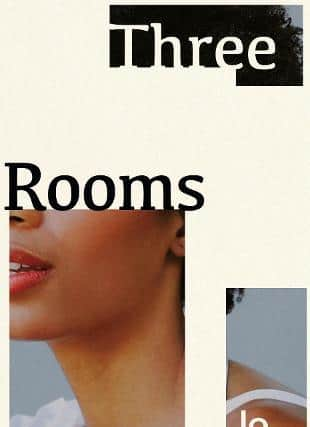Book review: Three Rooms, by Jo Hamya


The epigraph sets tone: three short excerpts from Virginia Woolf’s essay, "A Room Of One’s Own.” This is Jo Hamya’s first novel, and Woolf is an influence and one who offers a challenge. Like many first novels written by young authors, there are elements of autobiography. This is fresh, not long matured, and the frequent mentions of the run-up to Brexit and other contemporary politics give the novel some authentic ballast which will ensure its immediate appeal to many of the author’s generation while also, one guesses, dating it very quickly. But, since it is very much a novel of our time and Hamya’s generation, where life is lived as much on a screen as in live communication, this was doubtless unavoidable. The novel also plays off Rachel Cusk’s solipsistic not-quite-fiction, sometimes acerbically.
Thee narrator is, like the author, a highly educated young woman of colour. She is seeking to make her way in the world and finding it hard going. Some of her interests are agreeably unfashionable. I wouldn’t think many young English graduates share her enthusiastic appreciation of Walter Pater, Victorian scholar and aesthete, author of “Marius the Epicurean” and essays on Renaissance painting.
Advertisement
Hide AdIn the first section the heroine has a temporary assignment as a research student in Oxford. Later, removing to London, she finds work on a glossy magazine, as Hamya herself has done. Her meagre pay just enables her to pay for a sofa in someone else’s flat. This makes for a degree of self-pity, something common to first novels and perhaps to many of her generation who have been highly educated but find no immediately satisfying place for themselves in a world that does not seem to care for or value their higher education. No doubt this is true to life or at least to the author’s unavoidably limited experience of the world. But it is not, as she seems to suppose, unique to her generation. Many have always found the transition from university to the world of work difficult, disturbing and disappointing. More happily however, a degree of self-pity and consequent resentment has often served writers well. Consider not only Woolf, who scored high on self-pity, but very different writers such as Kingsley Amis and Philip Larkin. Anthony Powell indeed thought self-pity a frequent adjunct of the bestseller, certainly a tenable assertion.


Still there is also an agreeable sharpness of observation here too. Hamya cherishes detail and this is good. She gives a vivid and persuasive picture of life as lived by highly intelligent well-educated young people today, puzzled and dismayed by the indifference to culture displayed by many they encounter both at university and in the adult world she enters. Not surprisingly, she finds it hard to understand how people can embrace causes for which she can experience only distaste. Well, this is certainly true to life.
The narrator is often tediously self-regarding, but in compensation, there are agreeable flashes of humour: “I read the Prime Minister’s Twitter feed. I felt shock at how laborious it was to be fully up to date with the news. I was ostensibly unemployed but an afternoon of research felt like its own full-time job.” Unpaid, of course.
It’s a picture of the world the author lives in and one that rings true. The woman in whose flat she has been living apologises for “being uptight”, then says “But I need you to apologise for infringing my personal boundaries, too, okay?” I suppose some people do speak like this, and, with variation always have. It’s a sentence that could, in its fashionable absurdity, have come from a Kingsley Amis novel.
Jo Hamya is a very talented writer and this is a good beginning. She has intelligence, a sharp eye and a keen ear. I’m sure she will write richer and fuller novels in which other people are granted the understanding denied them here.
Three Rooms, by Jo Hamya, Jonathan Cape, 191pp, £12.99
A message from the Editor:
Thank you for reading this article. We're more reliant on your support than ever as the shift in consumer habits brought about by coronavirus impacts our advertisers.
If you haven't already, please consider supporting our trusted, fact-checked journalism by taking out a digital subscription at https://www.scotsman.com/subscriptions